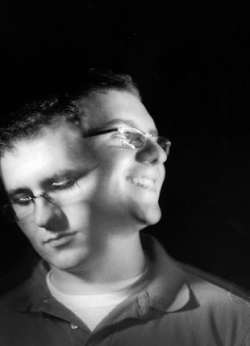Manic Depressive Disorder Symptoms
- Everyone has good days & bad days, but manic depressive disorder can make the good & the bad more pronounced.
- Manic depressive disorder symptoms range from sever mania and severe depression.
- Suicide is a major risk factor in the depressive phase of bipolar disorder.
For those who suffer from manic depressive disorder, the highs and lows of everyday life are exceedingly higher and lower than the average person. Symptoms of manic depressive disorder, also called bipolar disorder, can interrupt daily routines, cause damage to relationships and disrupt the well-being of the individual suffering from the disorder as well as anyone else involved. Without treatment, symptoms of manic depressive disorder will likely become worse and could lead to serious mania or depression that results in suicidal thoughts, tendencies or behaviors.
Everyone has good days and bad days. Unfortunately, the good days and bad days for an individual who suffers from manic depressive disorder are so good and so bad that living a normal lifestyle becomes challenging in more ways than one. The symptoms of manic depressive disorder may include patterns of mania followed by patterns of depression. Frequent mood disruptions are common and can be seriously disrupting to everyday life.
Mania Signs

Manic depressive disorder can leave you feeling hopeless.
When an individual who suffers from bipolar disorder experiences happiness, the mania may be overwhelming. The mania can feel good at first but often leads to reckless behaviors that make matters worse. The individual may:
- feel euphoric
- act unrealistically or have grandiose beliefs as to their ability or power to perform or do certain things
- talk very fast and be difficult to understand
- have unrealistic thoughts or thoughts that come and go very quickly causing disruptions in concentration or focus
- be impulsive
Signs of Depression
When an individual who suffers from manic depressive disorder is not in a state of mania, he or she may show symptoms of depression. The depression associated with bipolar disorder is typically very strong and dangerous. Symptoms may include:
- feeling hopeless
- feeling sad and lonely
- feeling tired or having a complete loss of energy
- irritability or anxiousness
- mental fatigue or fog
- suicidal thoughts
Suicide Risk
Unfortunately, there is a serious risk of suicide for those who suffer from bipolar disorder. Suicide risks increase tremendously for the individual during periods of depression but there are risks associated with mania as well. Individuals who suffer from manic depressive disorder should take medication to help control their behaviors and their emotions. When medications are not taken, or when treatment is not received, bipolar symptoms tend to become worse and worse in a progressive manner which can lead to an increased risk of suicidal thoughts, tendencies and actions.





